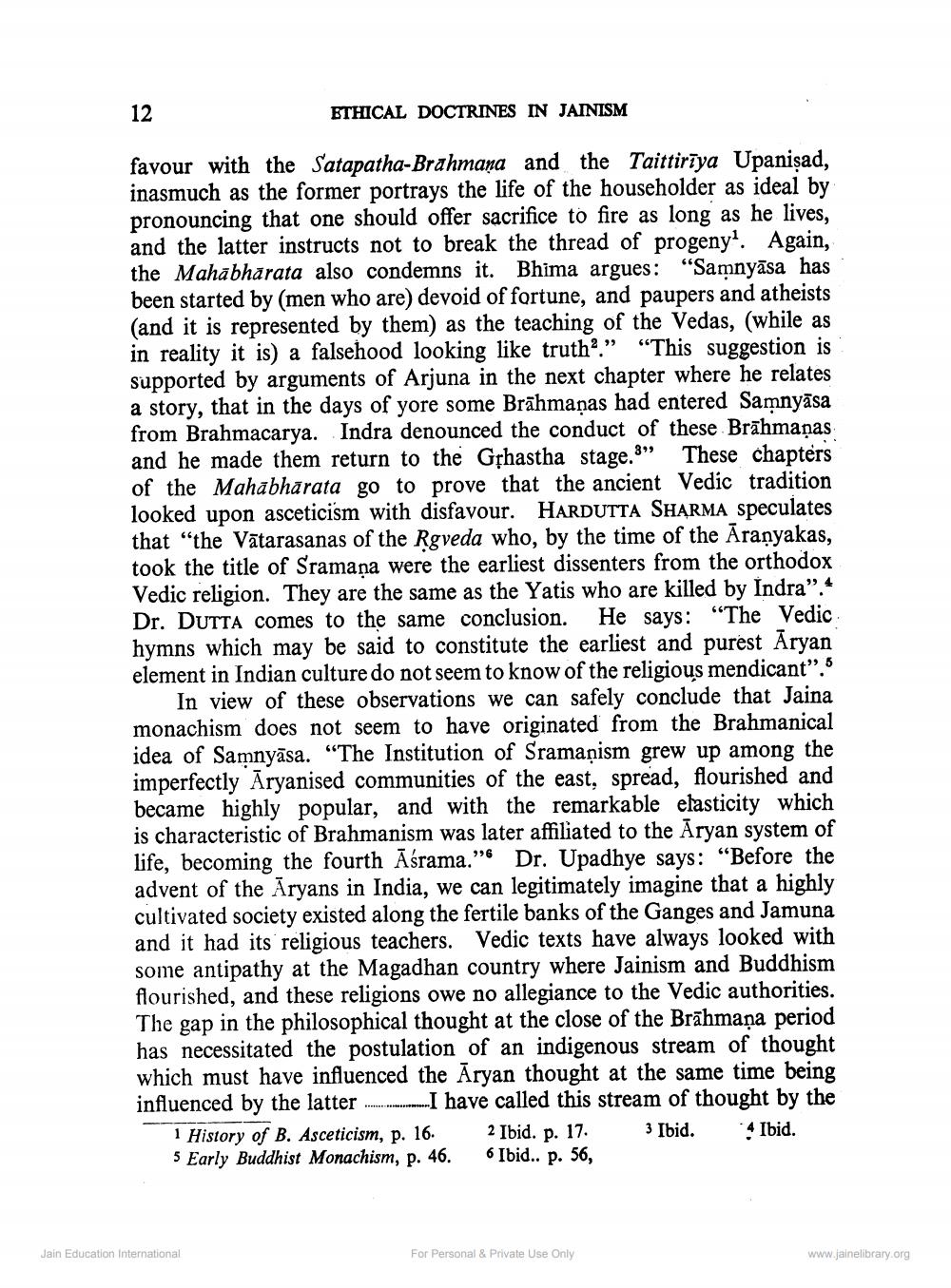________________
ETHICAL DOCTRINES IN JAINISM
favour with the Satapatha-Brahmana and the Taittirīya Upanisad, inasmuch as the former portrays the life of the householder as ideal by pronouncing that one should offer sacrifice to fire as long as he lives, and the latter instructs not to break the thread of progenyl. Again, the Mahabharata also condemns it. Bhima argues: “Samnyāsa has been started by men who are) devoid of fortune, and paupers and atheists (and it is represented by them) as the teaching of the Vedas, (while as in reality it is) a falsehood looking like truth.” “This suggestion is supported by arguments of Arjuna in the next chapter where he relates a story, that in the days of yore some Brāhmanas had entered Samnyāsa from Brahmacarya. Indra denounced the conduct of these Brāhmaṇas and he made them return to the Gphastha stage.3" These chapters of the Mahābhārata go to prove that the ancient Vedic tradition looked upon asceticism with disfavour. HARDUTTA SHARMA speculates that "the Vātarasanas of the Rgveda who, by the time of the Aranyakas, took the title of Sramana were the earliest dissenters from the orthodox Vedic religion. They are the same as the Yatis who are killed by Indra”.4 Dr. DUTTA comes to the same conclusion. He says: “The Vedic hymns which may be said to constitute the earliest and purest Aryan element in Indian culture do not seem to know of the religious mendicant”.5
In view of these observations we can safely conclude that Jaina monachism does not seem to have originated from the Brahmanical idea of Samnyāsa. “The Institution of Sramaņism grew up among the imperfectly Āryanised communities of the east, spread, flourished and became highly popular, and with the remarkable elasticity which is characteristic of Brahmanism was later affiliated to the Aryan system of life, becoming the fourth Āśrama.” Dr. Upadhye says: “Before the advent of the Aryans in India, we can legitimately imagine that a highly cultivated society existed along the fertile banks of the Ganges and Jamuna and it had its religious teachers. Vedic texts have always looked with some antipathy at the Magadhan country where Jainism and Buddhism flourished, and these religions owe no allegiance to the Vedic authorities. The gap in the philosophical thought at the close of the Brāhmaṇa period has necessitated the postulation of an indigenous stream of thought which must have influenced the Āryan thought at the same time being influenced by the latter I have called this stream of thought by the
1 History of B. Asceticism, p. 16. 2 Ibid. p. 17. 3 Ibid. Ibid. 5 Early Buddhist Monachism, p. 46. Ibid.. p. 56,
Jain Education International
For Personal & Private Use Only
www.jainelibrary.org




